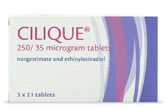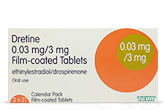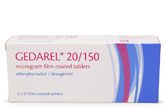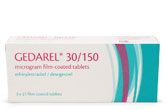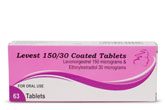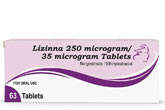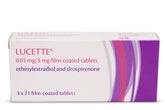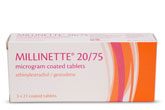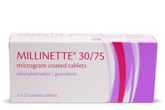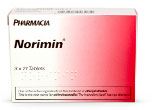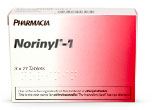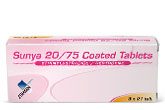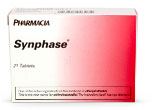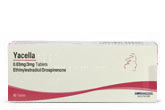Combined contraceptive pill
Buy 3 months supply of your current contraceptive pill online from our UK registered pharmacy managed by GPs.
Read medical information and answer medical questions to buy treatment online.
Order combined contraceptive pill online
All medicine supplied is UK licensed.
Prices
| Contraceptive pill type | Quantity (trip length) | Cost |
|---|---|---|
| Brevinor | 3 x one month pack | £12.50 |
| Cilique | 3 x one month pack | £12.50 |
| Dretine | 3 x one month pack | £15.50 |
| Eloine | 3 x one month pack | £22.00 |
| Femodene | 3 x one month pack | £13.60 |
| Femodene ED | 3 x one month pack | £16.50 |
| Femodette | 3 x one month pack | £16.50 |
| Gedarel 20/150 | 3 x one month pack | £11.50 |
| Gedarel 30/150 | 3 x one month pack | £10.60 |
| Katya 30/75 | 3 x one month pack | £16.50 |
| Levest | 3 x one month pack | £11.50 |
| Lizinna | 3 x one month pack | £13.50 |
| Logynon | 3 x one month pack | £15.00 |
| Logynon ED | 3 x one month pack | £15.00 |
| Lucette | 3 x one month pack | £17.00 |
| Marvelon | 3 x one month pack | £13.20 |
| Mercilon | 3 x one month pack | £17.50 |
| Microgynon 30 | 3 x one month pack | £13.50 |
| Microgynon 30 ED | 3 x one month pack | £13.50 |
| Millinette 20/75 | 3 x one month pack | £12.00 |
| Millinette 30/75 | 3 x one month pack | £11.50 |
| Norimin | 3 x one month pack | £12.50 |
| Norinyl-1 | 3 x one month pack | £12.50 |
| Ovranette | 3 x one month pack | £12.50 |
| Qlaira | 3 x one month pack | £36.00 |
| Rigevidon | 3 x one month pack | £10.90 |
| Sunya 20/75 | 3 x one month pack | £19.00 |
| Synphase | 3 x one month pack | £11.50 |
| Triregol | 3 x one month pack | £11.50 |
| Yacella | 3 x one month pack | £15.50 |
| Yasmin | 3 x one month pack | £24.20 |
| Zoely | 3 x one month pack | £28.80 |
Prices for 3 x 1 month calendar packs are listed above by brand. Dr Fox also charges a small prescription fee per order.
If you have your own private paper prescription please post to our pharmacy (details).
Prescription fees
Dr Fox supplies medicine on prescription and charges a small prescription fee based on the order value of each prescription.
Prescriptions are issued by our doctors online and sent electronically to our pharmacy.
| Order value | Prescription fee |
|---|---|
| up to £10 | £1.00 |
| up to £20 | £2.00 |
| up to £40 | £3.00 |
| over £40 | £4.00 |
If you have your own private or NHS paper prescription please post to our pharmacy (details).
Dr Fox prices are 25%–50% lower than other UK online clinics.
| Item | Dr Fox* | Zava | Superdrug | Asda | Simple Online Pharmacy | Oxford Online Pharmacy | The Independent Pharmacy |
|---|---|---|---|---|---|---|---|
| Brevinor | £12.50 | £18.00 | £20.00 | n/a | £11.95 | n/a | £19.99 |
| Cilique | £12.50 | £17.00 | £19.99 | £18.00 | £12.49 | £14.49 | £19.99 |
| Dretine | £15.50 | n/a | n/a | n/a | n/a | n/a | n/a |
| Eloine | £22.00 | n/a | £30.00 | £25.00 | £18.99 | n/a | £32.99 |
| Femodene | £13.60 | £18.99 | £14.99 | £14.00 | £12.95 | £12.95 | £21.99 |
| Femodene ED | £16.50 | £18.99 | n/a | £16.00 | £15.95 | £15.95 | £21.99 |
| Femodette | £16.50 | £19.99 | £27.50 | £16.00 | £15.95 | £15.95 | £22.99 |
| Gedarel 20/150 | £11.50 | £17.99 | £14.99 | £14.00 | £10.95 | £18.98 | £18.99 |
| Gedarel 30/150 | £10.60 | £15.00 | £14.99 | £14.00 | £9.95 | £18.98 | £18.99 |
| Katya 30/75 | £16.50 | n/a | n/a | n/a | £14.49 | n/a | n/a |
| Levest | £11.50 | £19.00 | £19.99 | £18.00 | £14.99 | n/a | £19.99 |
| Lizinna | £13.50 | n/a | £19.99 | £19.00 | £12.99 | n/a | £19.99 |
| Logynon | £15.00 | £15.99 | £20.00 | £15.00 | £13.95 | £13.95 | £22.99 |
| Logynon ED | £15.00 | £15.99 | n/a | £15.00 | £13.95 | £13.95 | £14.99 |
| Lucette | £17.00 | £20.99 | £25.00 | £19.00 | £14.99 | £19.00 | £24.99 |
| Marvelon | £13.20 | £19.99 | £15.99 | £14.00 | £12.95 | £15.49 | n/a |
| Mercilon | £17.50 | £22.99 | £25.00 | £18.90 | £16.95 | £16.94 | £22.99 |
| Microgynon 30 | £13.50 | £14.00 | £14.99 | £14.00 | £12.95 | £12.95 | £21.99 |
| Microgynon 30 ED | £13.50 | £14.00 | £14.99 | £15.00 | £12.95 | £12.95 | £21.99 |
| Millinette 20/75 | £12.00 | £18.00 | £14.99 | £14.00 | £14.99 | £14.98 | £19.99 |
| Millinette 30/75 | £11.50 | £15.99 | £14.99 | £14.00 | £14.99 | £14.98 | £19.99 |
| Norimin | £12.50 | £12.99 | n/a | £10.00 | £11.95 | n/a | n/a |
| Norinyl-1 | £12.50 | n/a | n/a | n/a | £11.95 | £22.99 | n/a |
| Ovranette | £12.50 | £15.00 | £20.00 | £18.00 | £10.99 | £11.95 | £19.99 |
| Qlaira | £36.00 | £40.99 | £50.00 | £39.00 | £35.99 | n/a | n/a |
| Rigevidon | £10.90 | £15.00 | £14.99 | £14.00 | n/a | £19.99 | £20.99 |
| Sunya 20/75 | £19.00 | n/a | n/a | n/a | £19.99 | n/a | n/a |
| Synphase | £11.50 | n/a | £20.00 | n/a | n/a | n/a | n/a |
| Triregol | £11.50 | n/a | n/a | £18.00 | £10.99 | n/a | n/a |
| Yacella | £15.50 | n/a | n/a | n/a | n/a | Zoely | £23.99 |
| Yasmin | £24.20 | £26.99 | £24.99 | £24.00 | £23.95 | £23.95 | £33.99 |
| Zoely | £28.80 | n/a | n/a | n/a | £29.99 | n/a | £35.99 |
Delivery charges
UK delivery only: £2.90 per consultation via Royal Mail Tracked 24 (1-3 working days with tracking).
Parcel forwarding services are not permitted. Use only UK home or work delivery address.
Returns and refunds - unwanted items can be returned within 14 working days for a full refund.
Medical information
Written and reviewed by a team of doctors. Dr Fox is regulated by the CQC & GPhC.
Women who are eligible can obtain a 3-month supply of their current combined contraceptive pill if the following applies:
- You have been taking the same combined contraceptive pill for the last year.
- You have had no problems with your contraceptive pill in the last year.
- You have had a pill check-up in the last year.
Dr Fox can only issue a 3-month supply of your current combined pill. This service does not replace your regular contraceptive pill check-up. We are required to inform your GP of any supplies and will require your GP details.
Dr Fox has a separate consultation to supply the progestogen-only pill (POP or mini pill), for first time users and for ongoing use.
The service is available only to women 18-49 years of age. Younger women should obtain contraception from their GP or a local pharmacy or sexual health clinic:
UK sexual health clinics
Risks of taking the combined contraceptive pill
The risks of taking the combined contraceptive pill vary depending on general health, age and type of pill. For more details please see the patient information leaflet supplied with all pill packs (links to each leaflet are also below). We do not supply contraception to women in high risk groups.
The combined contraceptive pill (pills containing oestrogen and progestogen) increases the risk of thrombosis (blood clots), arterial/heart disease, migraines, and high blood pressure.
There is a very small increase in risk of breast and possibly cervical cancer with these pills. This reduces after stopping taking them and is balanced by a lifetime small decreased risk of cancer of the ovaries, bowel, blood, and womb.
We are unable to supply the combined contraceptive pill online to women aged under 18 or over 50 years. Please consult your regular doctor/nurse or a contraceptive advice service.
Selecting contraception
After a consultation you will, if eligible, be able to choose your current contraceptive pill from the list below.
Dr Fox Pharmacy only allows the supply of your current pill, not changes to new pills. Alternately you can choose to start a new desogestrel progestogen-only pill from Dr Fox.
Selecting suitable contraception is a very personal choice. Some contraceptives require consultation with a doctor or a specialist sexual health advisor. Others require professional administration (intrauterine devices, implants, depot injection), or specialist tuition (cap or diaphragm use), or self injection (Sayana press). Various factors should be considered in making the choice including general health, lifestyle, personal preference, past contraceptive history, past medical history, and current medication, as not all types of contraception are suitable for all women.
Contraception is available free on the NHS and can be provided confidentially to women of all ages including under 16s.
Contraceptive choices
- Combined hormones as pills, patches, or vaginal rings.
- Single progestogen hormone as mini pills, long acting injections, implants, or in a intrauterine system (fitted into the womb).
- Copper coils (fitted into the womb).
- Barrier methods such as condoms, diaphragms, and caps.
- Male or female sterilisation which is non-reversible.
There are also natural methods which rely on having intercourse at non-fertile times.
Each method has its advantages and disadvantages.
The Long-Acting Reversible Contraceptive methods (LARC) such as injections, implants, and intrauterine methods can be the most reliable contraceptives. These are available from GPs and sexual health services.
How effective are combined pills (COC) at preventing pregnancy?
COC can be 99% effective in preventing pregnancy. If taken correctly, only 1 woman in 100 taking any combined pill will become pregnant each year. However in 'typical' use they can prove less effective and up to 9 women in 100 actually get pregnant. User reliability makes a big difference!
See also Can I trust my contraceptive? and NHS: How effective is contraception at preventing pregnancy?.
Sometimes it's hard to remember to take the contraceptive pill at the same time every day. Setting a daily reminder on your phone or using a pill reminder app may help.
Some medications can also affect the absorption of the hormones in the pill so if you are starting on new medication, please ensure you read the patient information leaflet supplied with it to check.
Other forms of contraception, including Long-Acting Reversible Contraception methods (LARC: injections, implants, and intrauterine coils), may be better if pills are regularly forgotten.
How to take combined contraceptive pills
When combined hormonal contraception (CHC) was first developed it was believed that a regular monthly bleed was healthy and would reassure women. The standard routines for combined oral contraceptive pill (COC) use were therefore developed to mimic the natural 28-day cycle, i.e. 3 weeks of contraceptive use, then 1 week off, during which a period type bleed happens.
In more recent years, guidance has been developed around alternative extended use routines which reduce bleeding patterns.
There are several different options but the most common are:
- Tricycling - take the combined contraceptive pill for 9 weeks with no break. Then take a 4-day or a 7-day break before restarting. Bleeding should start within a few days. Restart after 4 or 7 days even if still bleeding. If the pill is not restarted, there is a risk of pregnancy if sex took place during the break. Choosing a 4-day break gives less chance for the ovaries to wake up and begin to release an egg.
- Flexible extended use - continue to take the combined contraceptive pill until period-type bleeding occurs. This can take several months. After 2 days bleeding, take a 4-day break and then restart the pill until the next bleed. Restart after 4 days, even if still bleeding. If the pill is not restarted there is a risk of pregnancy if sex took place since it was last used.
These different routines are suggested in guidance from the FSRH (Faculty of Sexual and Reproductive Health), however they are 'off label' uses and different to the terms of the manufacturers' licence. Doctors take responsibility for the prescribing.
Further information on how to take contraceptive pills.
Patient Information Leaflets:
Missed, forgotten, or vomited pills
If you forget or miss your pill there could be an increased risk of pregnancy. You may need to use emergency contraception. The rules about what to do in these situations are complicated. What to do depends on how much has been missed and when in the cycle.
Details can be found in the patient information leaflet supplied in pill packs and at NHS: Contraception guide - What should I do if I miss a pill (combined pill)? and in the Dr Fox article Missed a Pill? Here's what to do. You can also contact NHS 111 or the Sexual Health Line on 0300 1237123.
If vomiting occurs within three hours, take another pill and the next pill at the usual time. If there is severe diarrhoea lasting over 24 hours, then contraceptive cover is likely to be lost, and you may need to use condoms as well or take emergency contraception, if unprotected sex takes place.
Buy treatmentDr Fox supplies contraceptive pills on prescription to prevent pregnancy - you are required to answer a medical questionnaire before your order can be completed.

Authored 18 March 2010 by
Dr
Tony Steele
MB ChB Sheffield University 1983. Former hospital doctor and GP. GMC no. 2825328
Reviewed by
Dr
A. Wood,
Dr
C. Pugh,
Dr
B. Babor
Last reviewed 17 October 2022
Last updated
19 December 2025
Editorial policy
References
- FSRH, 2023, Clinical Guideline: Combined Hormonal Contraception, accessed 09 January 2025
- FSRH, 2019, UK MEC , accessed 09 January 2025
- FSRH, 2022, Guidance: Drug Interactions with Hormonal Contraception, accessed 09 January 2025
- NICE, 2024, Combined oral contraceptive, accessed 09 January 2025
- questions
- Choose
- order
Answer medical questions to order(combined contraceptive pill)
Honest & accurate responses are necessary for safe medical assessment
Recent Contraceptive pill reviews
Contraceptive pill rated 4.98/5 in 48 product reviews
See over 50,000 service reviews of Dr Fox
very good!
20 January 2026
Anonymous
Verified
All good, have been using it for a long time, no issues
27 June 2025
Anonymous
Verified
The only one that works for me, and this was the only place which stocked it! Many thanks.
28 October 2024
Anonymous
Verified
Very good pills
17 September 2024
Anonymous
Verified
Great and super cheap love it.
28 February 2023
Anonymous
Verified
The order process
Choose medication, register, and pay
Dr Fox issues prescription online
Pharmacy team post medication direct




